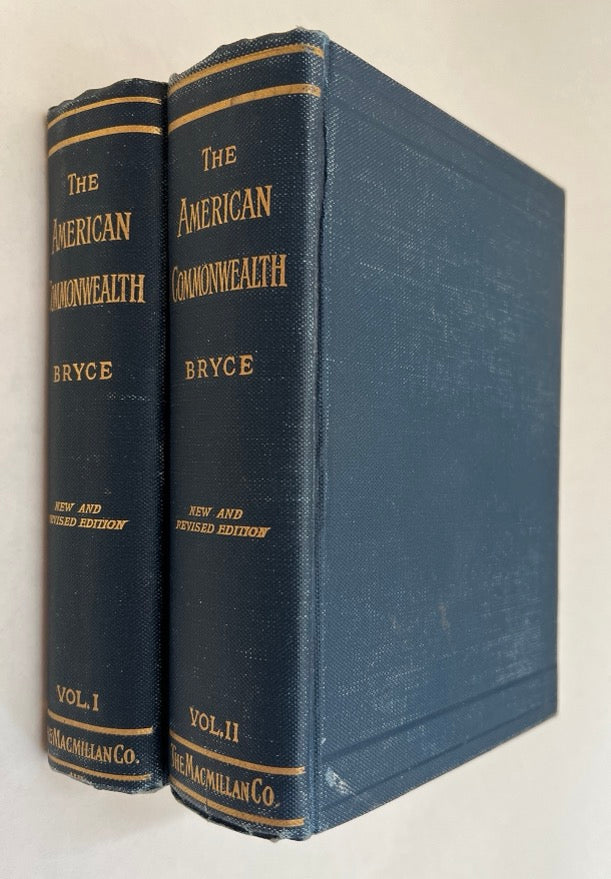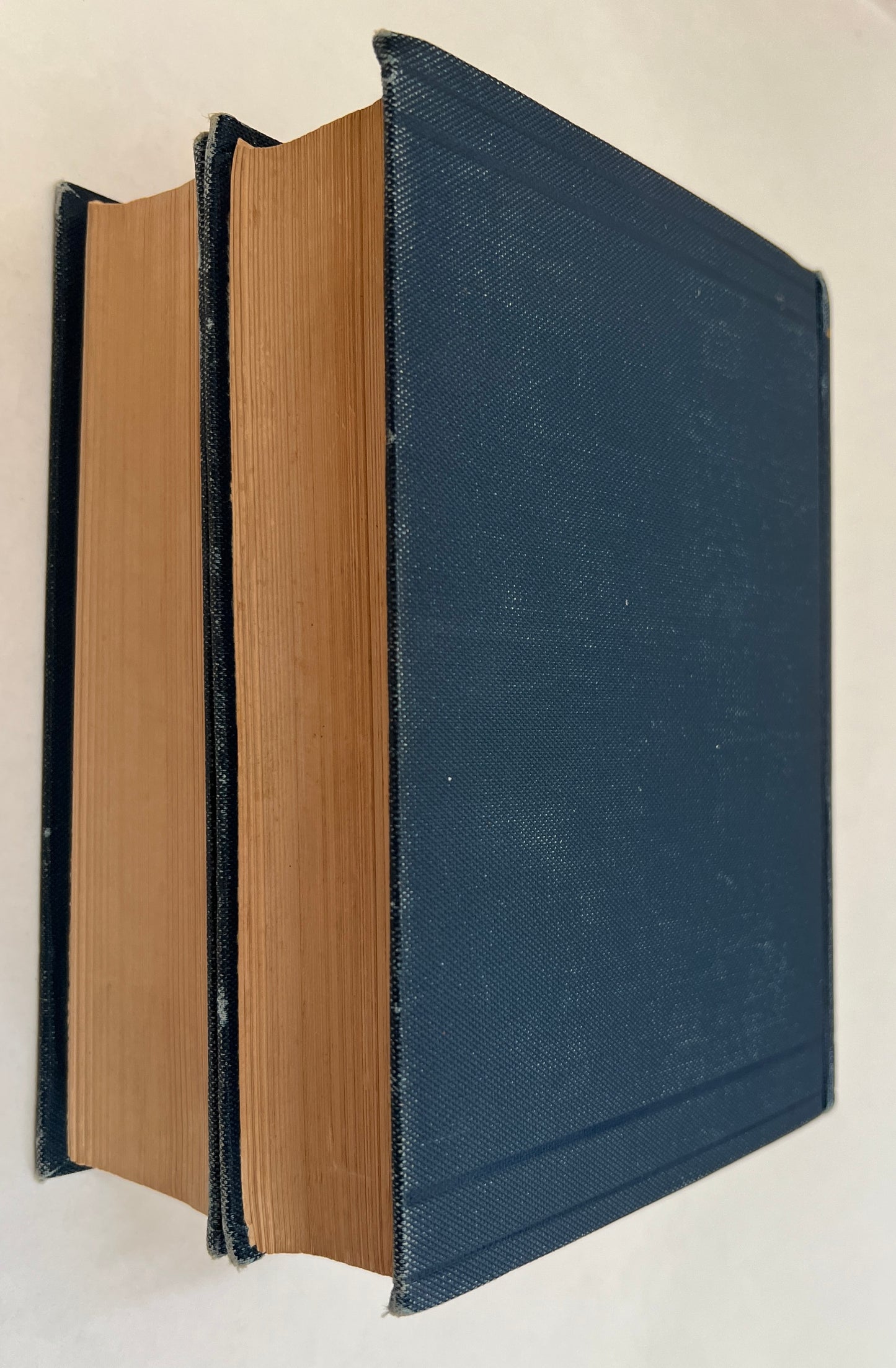Bryce, James, (Viscount Bryce)
The American Commonwealth
The American Commonwealth
Couldn't load pickup availability
New York: Macmillan, 1924. "New Edition; Completely Revised throughout with Additional Chapters". Two large octavo volumes in dark blue cloth with gilt titles to spines; xix, 743 & 963 pages; footnotes, bibliographical references and index. Personal owner names and dates hand-written in pen to front free endpapers; minor external wear; else overall a very good(+) set. Clean pages; solid binding. Hardcover.
Contents: Vol. 1. The national government. The state governments -- v. 2. The party system. Public opinion. Illustrations and reflections. Social institutions.
This two-volume set presents the results of conversations with scores of Americans, and the close observation of the operation of American political institutions, including political parties and municipal and state governments. It is based on the updated third edition of 1941.
"James Bryce, 1st Viscount Bryce, (10 May 1838 – 22 January 1922), was a British academic, jurist, historian, and Liberal politician. According to Keoth Robbins, he was a widely-traveled authority on law, government, and history whose expertise led to high political offices culminating with his successful role as ambassador to the United States, 1907–13. His intellectual influence was greatest in The American Commonwealth (1888), an in-depth study of American politics that shaped the understanding of America in Britain and in the United States as well.... "Bryce had become well known in America for his book The American Commonwealth (1888), a thorough examination of the institutions of the United States from the point of view of a historian and constitutional lawyer. Bryce painstakingly reproduced the travels of Alexis de Tocqueville, who wrote Democracy in America (1835–1840). Tocqueville had emphasised the egalitarianism of early-19th-century America, but Bryce was dismayed to find vast inequality: "Sixty years ago, there were no great fortunes in America, few large fortunes, no poverty. Now there is some poverty ... and a greater number of gigantic fortunes than in any other country of the world" and "As respects education ... the profusion of…elementary schools tends to raise the mass to a higher point than in Europe ... [but] there is an increasing class that has studied at the best universities. It appears that equality has diminished [in this regard] and will diminish further." The work was heavily used in academia, partly as a result of Bryce's close friendships with men such as James B. Angell, President of the University of Michigan and successively Charles W. Eliot and Abbott Lawrence Lowell at Harvard. The work also became a key text for American writers seeking to popularise a view of American history as distinctively Anglo-Saxon. The American Commonwealth contains Bryce's observation that "the enormous majority" of American women opposed their own right to vote."—Wikipedia
POLITICAL SCIENCE -- Civics & Citizenship. Politics and government. Social conditions. State governments. ¶ ** Heavy set. Extra shipping charges may apply.**
Share




